Start of third week of classes
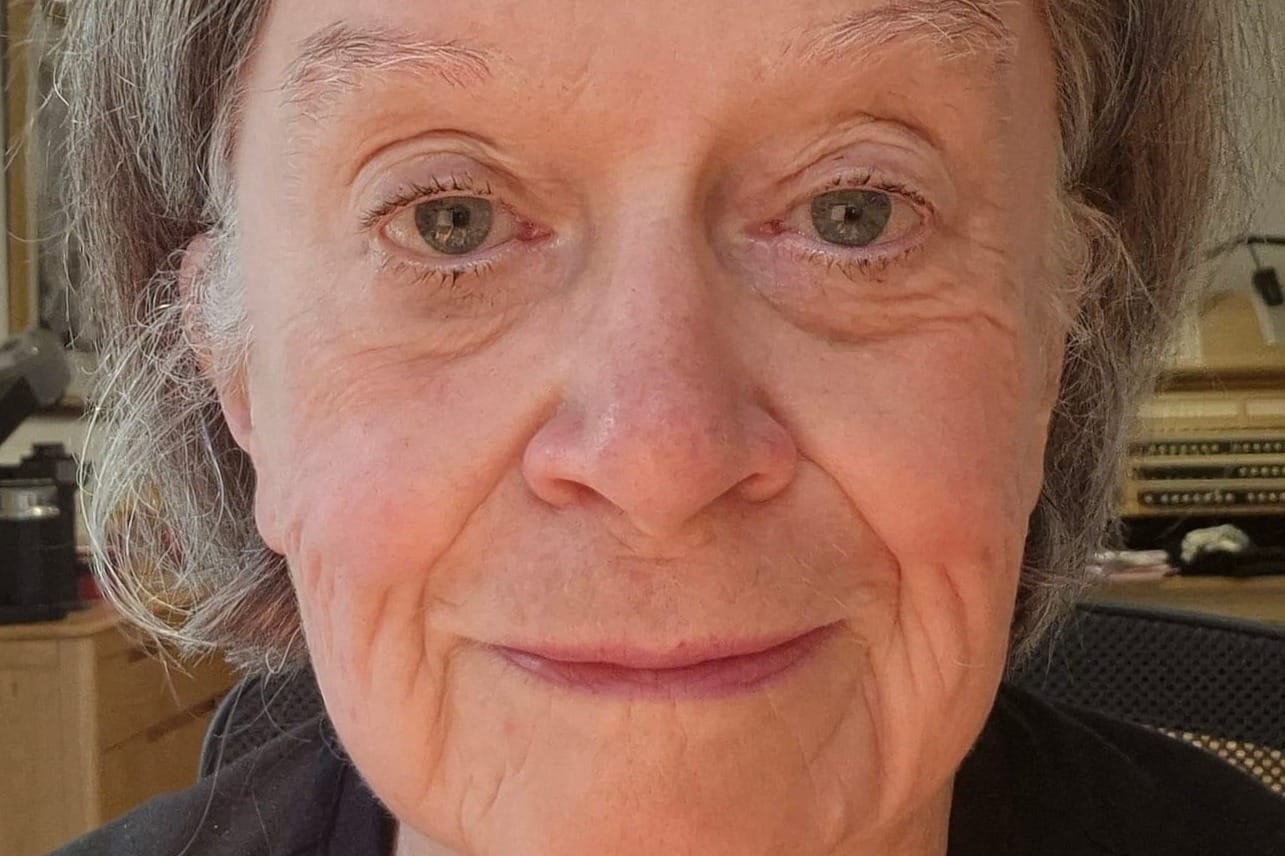
Just finished the second week of full classes, and as you can see, I'm showing some signs of wear and tear, although still looking as happy as I feel.
Our classes didn't begin until October 15th. It's good to get a rhythm going although in fact it's less of a rhythm and more like a tornado! We only have six weeks of classes this term. There was plenty of preparatory work to fill the weeks before they started, and even more work to fill the weeks after they end.
I have two two-hour seminars every week, supposedly on Wednesdays and Fridays, and each seminar requres the reading of about 200 pages of text relating to the many topics surrounding and contained in the study of musicology ("musicology" approximately means research into any and all aspects of music - aesthetics, politics, sociology, racism, gender, physiognomy, reflexive phenomenology, ethnography, aesthetics, formal analysis, philosophy, evolution of human music-making, graphic images of sound....... and on and on).
It used to be that music scholarship divided into two parts: musicology, which meant music history, which studied a fixed selection of "great composers" of the past 600 years; and music theory, which involved studying the written score to find patterns in the music that could be interpretated as the formal design of the piece of music in question. Then along came ethnomusicology, investigating non-Western traditions of music-making at first in Japan, China and India, countries with formal, classical-music styles; then later extending its range to include the music of Africa, indigenous people in Australia and North America, throat singing in Mongolia, Balinese gamelan music.......again, and so on and so on.
Some of the North American institutions have more or less stuck to the traditional divisions of music history, ethnomusicology and music theory, but in Europe there's been a huge explosion of musicology into so many different and emerging fields - some say too many for any sense of clear direction - as I listed up above.
The seminars present an exploration of some of the history of musicology, many of the divergent philosophies of musicology and musical historiography (I'm learning so many new words, my goodness, I now know the difference between historic and hisoriographic, heuristic and hermeneutic, ontology and epistemology, and even between teliology and - yup - relexive phemonenology. To say nothing of the application of the ideas of the Frankfurt School's Hegelian, Marxist and psychoanalytical synthesis of theories that foreshadow the demise of the USA with the coming of Trump and populist authoritarianism (this was an eye-opener for Barry and me - I sometimes read him what I have to read, because he's interested and it help me to remember the texts).
It's a lot of work, and all new to me, but very interesting and stimulating, and I have to say the past two weeks were close to being the best two weeks of my life!
Then another set of two classes are giving us Music Study Skills, and include approaches to identifiying primary sources of information, how to construct discographies (lists of recordings pertinent to whatever paper we might be writing), layers of musical intercultural influences, music and gender, music and race, library research, etc. (always an etc.).
To our shock and horror, some of the Music Study Skills also have 50 or so pages of reading and/or extra tasks. So the weekly reading is around 500 pages sometimes.
We have to do this reading, and take good notes to class, because the classes are not lectures. They are discussions on and around the texts, and we are being evaluated on how we demonstrate a good knowlege of what we've read, and how much we participate in the class discussions.
Every reading is presented first by a class member - a summary of the content and argument of the text with some subjective comments added, and then discussed. I am coming up for my second class presentation on Thursday. In addition, we have to submit 10 abstracts (kind of summary of current situation of the topic or theory, author's research aim, exploratory methodology used and research conclusions), with a short critique of the book, chapter or paper studied by the student (me). We also have a long essay to submit in December concerning one of the topics or texts studied this term. On top of this, there are meetings with supervisors to discuss the long dissertation due at the end of June. And colloquia every Wednesday with big stars from the international musicological firmament giving presentations to post-graduate student groups. This week it's Carlyn Abatte, which is kind of like saying Beyoncé will be singing in our classroom just for us.
This is why no blog for a while, and why I have to stop studying to tell about this great new hobby.
At the end of "Freshers' Week" (second week of October) there was a huge Freshers' Fair in a cluster of marquees set up on Parker's Piece, a big square grassy common in the middle of Cambridge. Trinity College owned the green until 1613, when they gave it to the town of Cambridge in exchange for another green space on the other side of the River Cam. Before that, in 1587, a cook at Trinity College leased 10 acres of the common from the college, and it's still named after him, as people used to call it Parker's piece of land. In the middle of the common is a big iron lampost, and on one side, as you face East, there's an inscription:
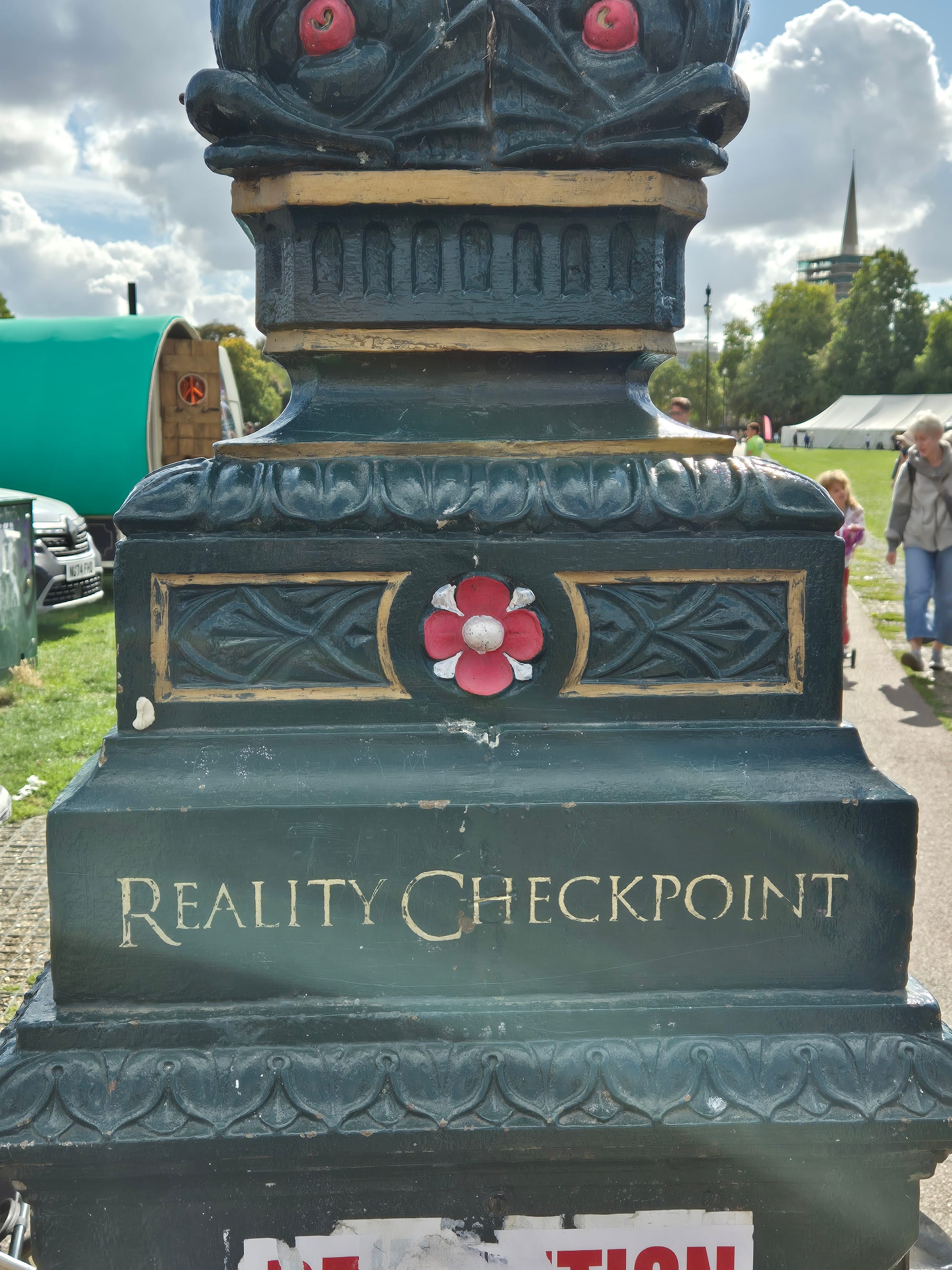
This is because behind me are all the University colleges which are the centre of town, not just at the centre of town (Cambridge is basically a university campus with some shops and a bit of town built outside streets lined with massive 13th- and 14th-century college buildings, each college comprising several acres of massive sandstone buldings with dining halls, quadrangles, student and guest rooms, tutorial and private studies and chapels). In front of me on the other side of the green is outside the town centre, with no more colleges, so this is the checkpoint where students leave behind the ivory towers of academia and enter the "real world" of the town's inner suburbs.
We also enjoyed the Communist Party posters all over the other lamp-posts - what are they to you, reality or fantasy?
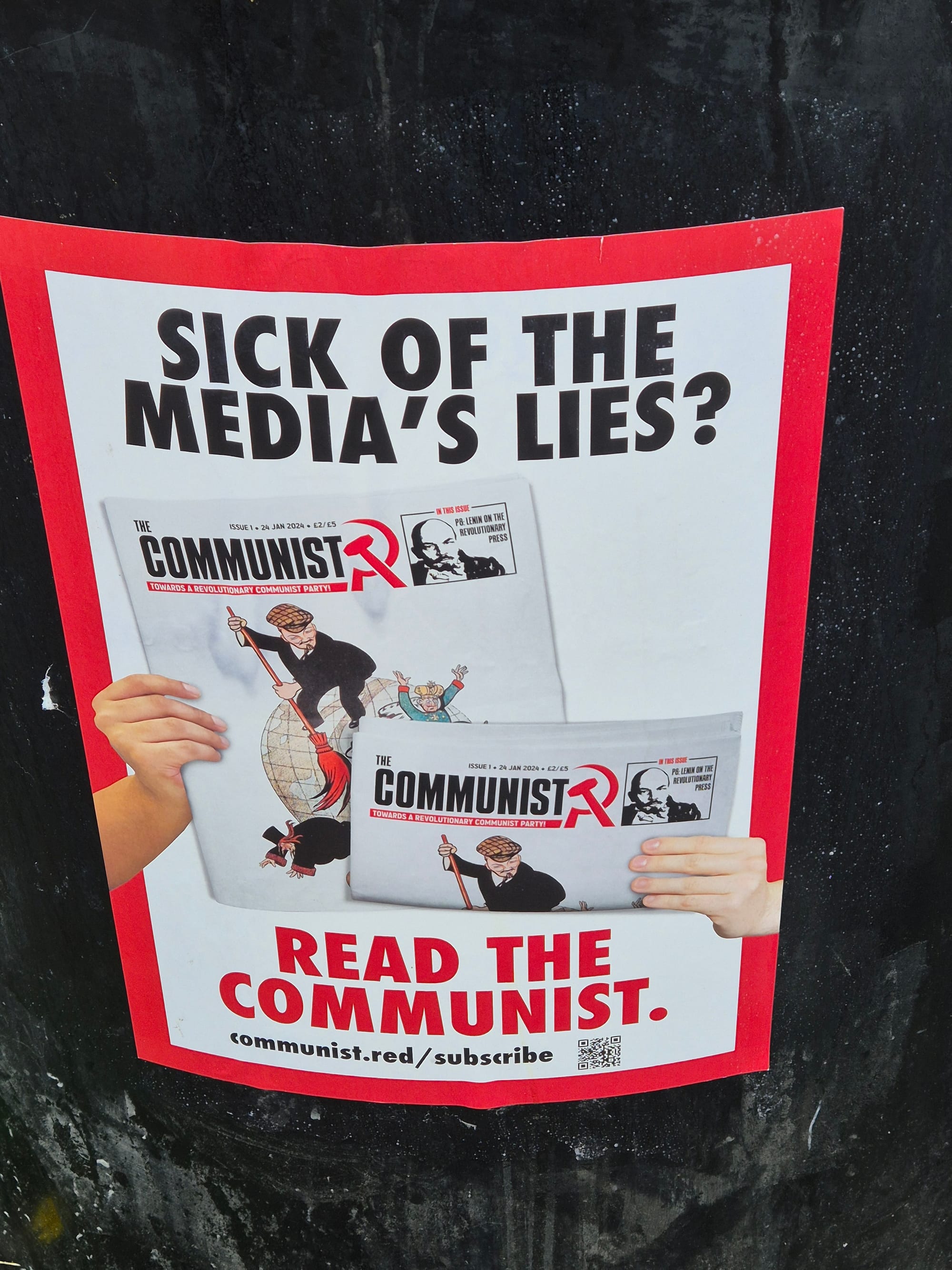

Anyway, fresher's week - mostly reps from different university societies. I wasn't expecting three huge marquees filled with options for finding a hobby, a community, or a vocation. Here comes another list of what I remember, some "of course"s and some "who would think it?"s.
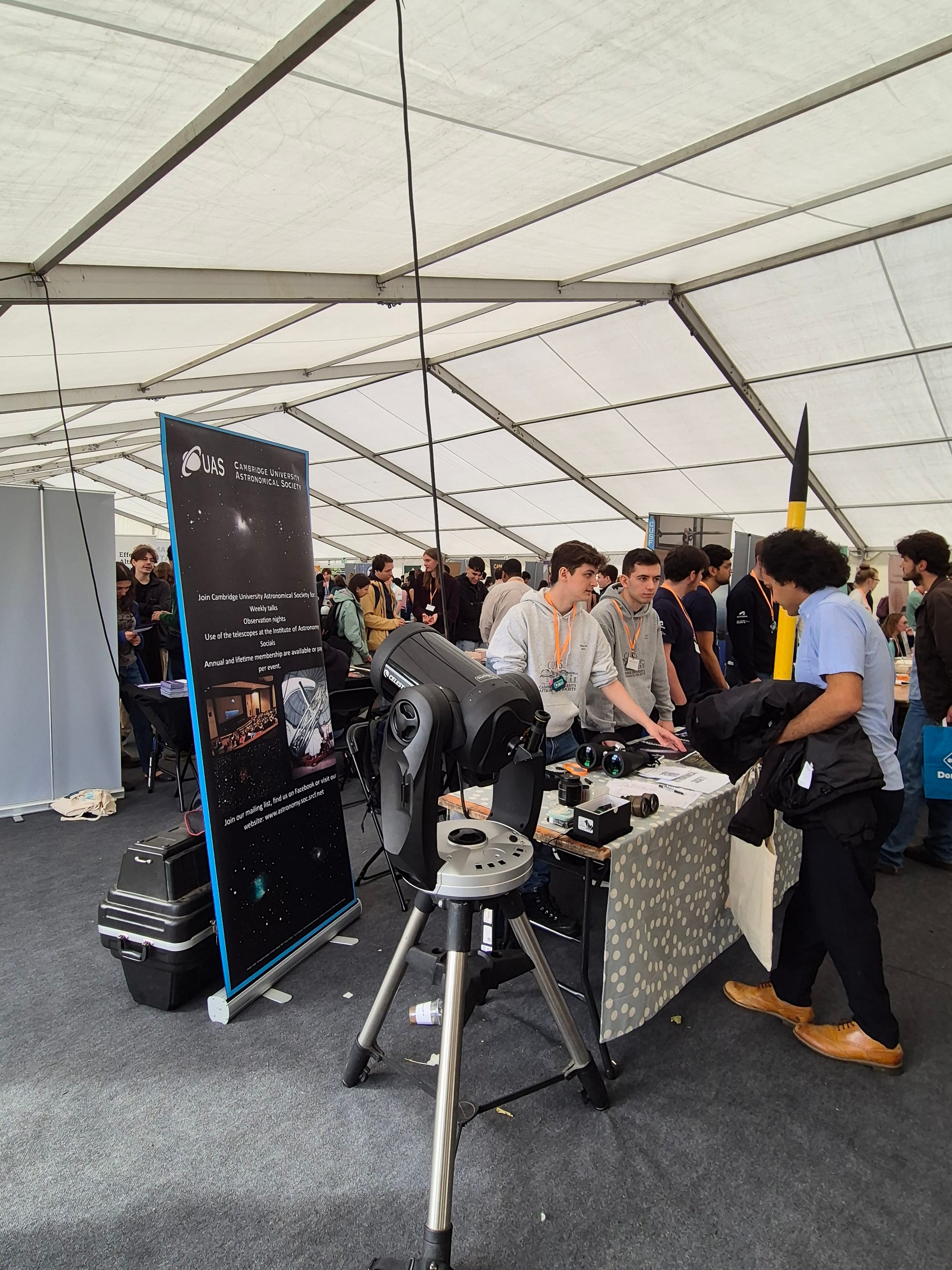
Of course there were Welsh, Scottish, Indian, Chinese, Malaysian, Nepalese, Australian, Brazilian, Iranian, Korean and more societies - but we didn't see a Canadian society.
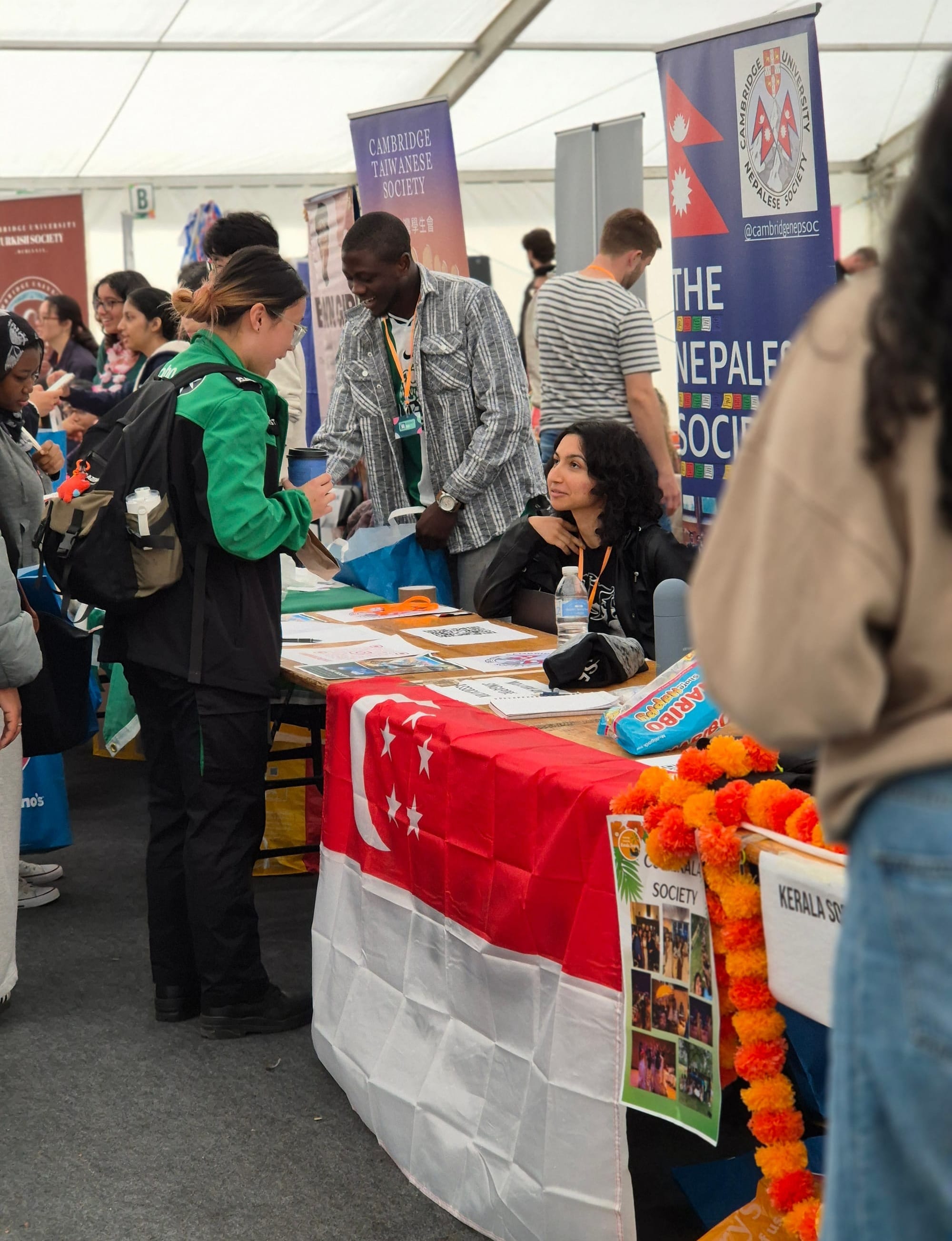
Of course there were chess, hockey, fencing, lacrosse, football, rugby, swimming, rowing, sailing, running, karate, yoga and meditation societies, but also a Freemasons' Society and a blind wine-tasting society and a fine-whisky-tasting society.
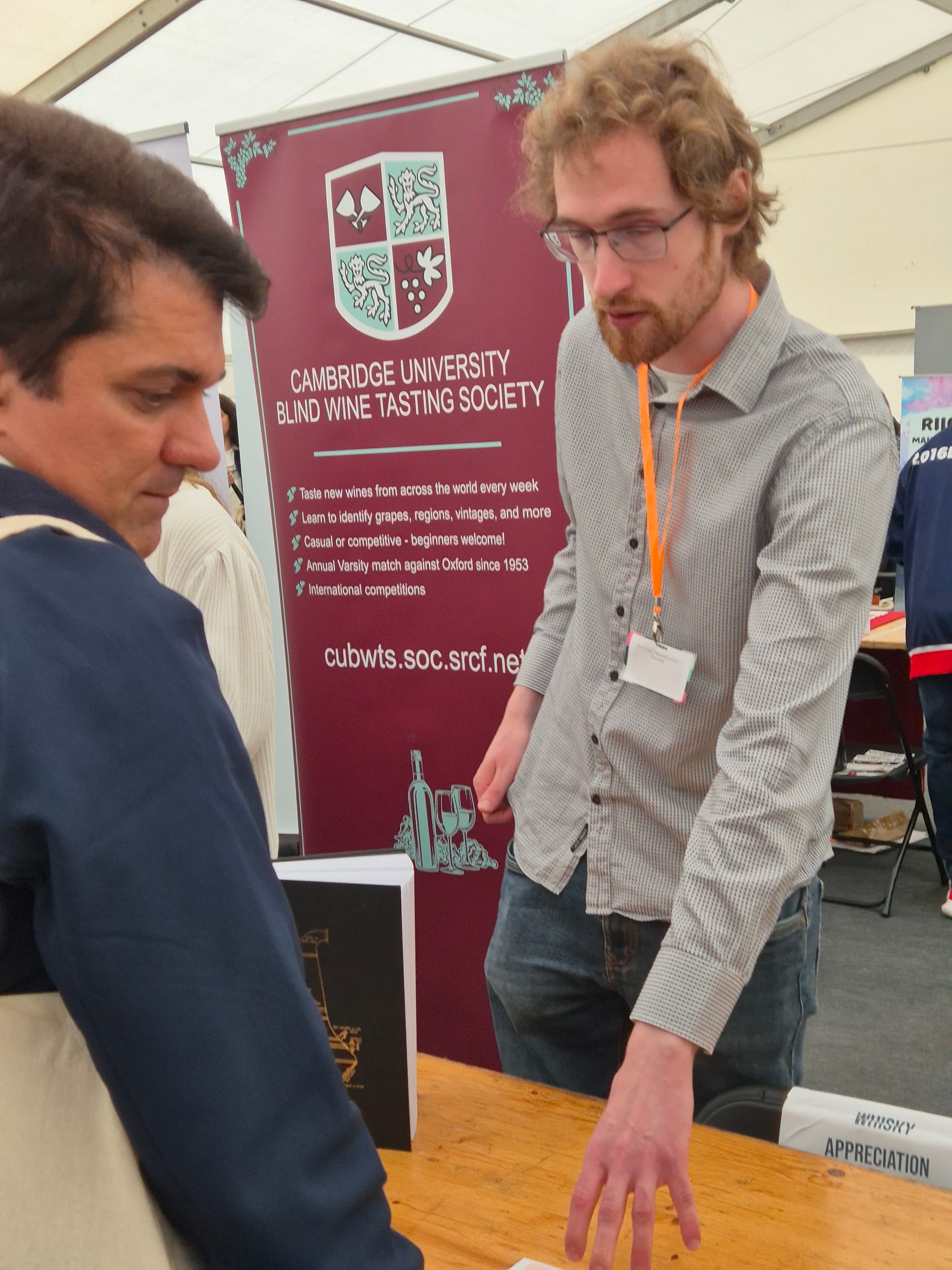
There is a mature-student society for over-21-year-olds, which divides into an Evensong group who meet up to go to Evensong in Christ's College Chapel with dinner afterwards; a dinner-swap society who offer dinner seats at their own colleges to other students who want to experience formal candlelit dinner at other people's colleges (dress is formal, with academic gowns to be worn, and you can't go to a college that isn't your own without an invitation from a college member), and there is a glider-building society and more, and finally there is a University of Cambridge Guild of Change Ringers, which is the society Barry and I joined.
Every weekend we climb up 67 stone steps in the spiral staircase inside the tower of Great St. Mary's Church, until we come to the bell-ringers room. Here we are learning the complicated patterns of changing the rounds to change the bell melody on handbells. And then, without any complications, we go to the bell ropes to learn the same concept of "downstroke and upstroke" with the huge weighty bells that swing in the bell-chamber another 70 steps above.
One day, if we persist, we might be able to join the student guild members who peal the bells at St. Bene'ts Church on Sundays, and get paid 20 quid for an hour's work. One day, maybe we'll be part of a glorious sound like this (recorded at Great St. Mary's Church, just after our lesson finished):
Bell tower, Great St. Mary's Church, founded 1010, destroyed by fire 1290 and rebuilt in stone.